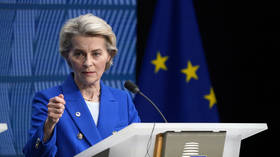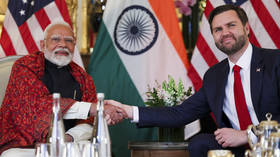Brest fortress defenders: betrayed heroes
Defending the Brest fortress was one of the first World War II battles for Russia. It was also one of its most poignant chapters
Nazi invaders thought they'd capture it in minutes, but they came up against a resistance that held out for weeks – and to the death.
Boys still come to play war at the Brest fortress. Its deserted towers make for the perfect hide outs, and extensive dungeons feed into the sense of excitement. But what now looks like a secluded playground was a blazing inferno 69 years ago.
Alexander Bobkov was 6 in 1941, living at the fortress with his parents. His entire family was wiped out in the fight.
“Adults instantly grasped the gravity of the situation but children didn't. Fear came later. When I saw my mother and sister killed – they were sitting right here – I tucked myself as far as I could under the bodies lying in the cellar,” he recalled the horrific moments.
Massively outnumbered, and with the Germans enjoying the element of surprise, the defenders of the Brest fortress had little chance of survival. Yet their resolve to die honorably – fighting till their last breath, shooting till their last shell – set an example of real, propaganda-free patriotism.
They left behind several inscriptions, like one scribbled with a knife on a wall: “We’ll die but we are not leaving the fortress.”
As much as it was a story of heroism and self-sacrifice, the defense of the Brest fortress was also an act of betrayal and state negligence, dooming the remaining garrison to an almost certain death.
Soviet propaganda had long portrayed Germans as blood-thirsty aggressors who attacked the Soviet Union without warning. But nowadays most historians agree Joseph Stalin knew what was about to happen and did little to minimize losses.
“There is no doubt the Soviet leadership knew about the coming German assault, and it didn’t inform all the commanders on the ground,” said historian Yury Nikiforov. “As a result of that, the Brest fortress wasn’t abandoned by all the troops and civilians as was tactically planned. And it became a sort of a mousetrap for the people who were caught there at the start of the war.”
Shot at point blank range, burned alive, starved to death, the assault left death forever etched into the fortresses soul. But among the carnage there was also compassion.
“I was lying wounded among the dead. I think he heard my groans,” said Aleksandr Bobkov. “He pointed his flashlight at me, took me in his arms and carried me to a field hospital. I later learned his name was France Kroyce. He died an old man in 1985. I never quite understood why one German threw a grenade at me while another bothered to save me.”
A move symbolic of the years of ferocious war to come, a war that would bring out in people both the very best and the very worst.












